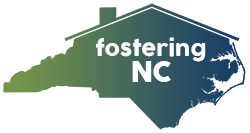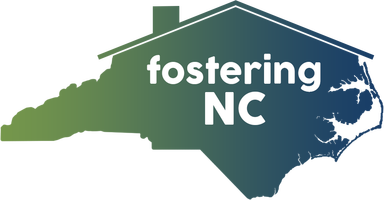On-Demand Courses

Course Options
Featured Courses:
Guardianship, Pathway to Permanence
New Course – This course provides North Carolina resource parents information about guardianship, which is a route to permanence for some youth in foster care. (1 hr.) Take course…
Supporting Kinship and Kin-Like Caregivers
In this course, participants will learn about what kinship and kin-like care is and how it benefits children and families. Participants will also learn about what it means to be a licensed kinship caregiver and what resources are available through … Read more
Identifying and Managing Implicit Biases
In this brief series, resource parents will increase their awareness of implicit biases and how biased decision making can impact permanency outcomes for children, youth, and families. It also provides a variety of strategies to help caregivers identify and manage … Read more
Kinship Caregiver Resources
This new FosteringNC.org page features a collection of courses and other resources of special interest to kinship caregivers. Visit…
The short courses below, all of which are free, are available any time and include a certificate of completion learners can share with their supervising agencies.
Note: If you wish to use these courses to meet in-service training requirements, you should first verify they will be accepted by your agency. To ensure course navigation and printing of certificates function as intended, we recommend taking these courses on a desktop or laptop computer with an up-to-date web browser.

About NC’s Foster Care System
Part of the “Stakeholder Engagement Series,” this course gives a high-level overview and explains how you can get involved in strengthening child welfare services in North Carolina. (25 min.)
Topics covered by this 1-hour course include the roles of key players in the court process, the types of court hearings in child welfare, the responsibilities of foster parents in court proceedings, and North Carolina’s Foster Parents’ Bill of Rights. (60 min.)
A short training for people considering becoming foster parents in North Carolina. (20 min.)

Maintaining Connections
Teaches the basics about child and family team meetings (CFTs) and answers common questions about how they relate to foster parents. (1 hr.)
(1 hr.)
(1 hr.)
(1 hr.)

Parenting Children & Youth in Care
This series focuses on how caregivers can support healthy child development in infancy, early childhood, school-age, and adolescence. It also explores ways to support youth whose development has been disrupted by trauma.
(1 hr.)
(1 hr.)
(1 hr.)
(20 minutes)
(20 minutes)
Describes the reasonable and prudent parent standard and how foster parents can use it to help children and youth in their care experience “normal,” developmentally-appropriate activities. (1 hr.)
Teaches strategies resource parents can use—including North Carolina’s LINKS goals and Transitional Living Plan—to help youth in foster care successfully transition into adulthood. Includes candid, practical suggestions from an experienced foster parent. (1 hr.)
New in Spring 2020: Triple P now includes “Parenting During COVID-19” module with specific tips and strategies to use right now) and a free downloadable guide about parenting during COVID-19.

Promoting Permanence
This course explains why North Carolina prefers to achieve permanence through reunification or kinship care, the importance of shared parenting and helping youth maintain connections with people that matter to them, and the role kinship care can play in achieving permanence. (1 hr.)
This course provides North Carolina resource parents information about guardianship, which is a route to permanence for some youth in foster care. (1 hr.)
In this course, participants will learn about what kinship and kin-like care is and how it benefits children and families. Participants will also learn about what it means to be a licensed kinship caregiver and what resources are available through the use of scenarios and videos from those with lived experience.
(2 hr.)
(1 hr.)
(1 hr.)
(1 hr.)

Well-Being
Explains the role of Local Management Entities/Managed Care Organizations (LME/MCOs) in North Carolina and how to build collaborative relationships with them so children and youth get the behavioral health services they need. NOTE: although child welfare professionals are the original intended audience for this course, resource parents are sure to find it useful. (3 hrs.)
Explores common reactions to loss, offers strategies for working through grief, and features interviews in which resource families share their experiences of grief and healing. (1 hr.)
This course explains what human trafficking is, how to recognize it, and how North Carolina resource parents can respond. (90 min.)
This course teaches North Carolina resource parents how to keep children and youth safe before, during, and after disasters. (1 hr.)
This course will help resource parents provide support and affirmation to youth in foster care when it comes to their sexual orientation, gender identity, and gender expression. (4 hr.)
Provides key information about recognizing and responding to suspicions of child maltreatment in North Carolina. (2 hrs.)
Helps resource parents understand suicide and non-suicidal self-injury in children and adolescents and teaches them how to respond. (1 hr.)





